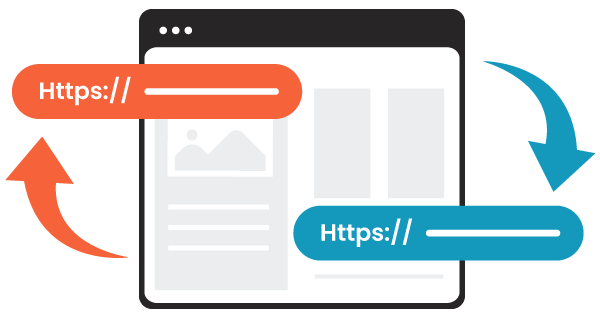Virtual Case Management techniques are shaking up the way nonprofits work.

The nonprofit sector is rapidly evolving as humanitarian organizations continue to find new solutions for incredibly diverse client needs. Increasing the quality and quantity of the aid that they provide matters to all of us, which is why we all work together in varying roles to pursue positive outcomes for them. From providing housing to offering behavioral health/mental health services to providing for basic nutritional needs, nonprofits do a huge amount of work every day to assist their clients. But the strategies through which organizations implement these programs and services are beginning to look much different than they have in the past.
How nonprofits benefit from virtual case management
While communication has been occurring virtually on a more regular basis, sectors driven by compassion have been more hesitant to adopt new technology. However, because of the COVID-19 pandemic, change was inevitable. 2020 caused many nonprofit organizations to begin serving clients remotely and use advanced technology to administer programs with surprising success. This historic global event forced the rapid adoption and integration of these technologies so case management could continue to work, especially during a time when needs were at an all-time high. As these technologies and resources rise in popularity and continue to increase efficiency, case management techniques will begin to rely on them more heavily, changing the ways that case managers and clients interact and build relationships.
What is Virtual Case Management?
Virtual Case Management (VCM) is the use of digital communication and remote work technologies to coordinate and deliver case management services and programs. Its origins lie in telehealth and tele-human services, wherein many healthcare professionals have begun to serve patients through video calls, text messaging, and collaboration databases. Now that major world events and exponential leaps in consumer technology have changed the way that we interact with the world, VCM is becoming increasingly useful and integral to the day-to-day operations of nonprofit organizations.

Many nonprofits and the organizations that support them are now investigating and implementing virtual case management tools as a way to improve current case management techniques and assist clients in both the present and future. It could cause a major shift in the way that nonprofit organizations operate, though these techniques need to be rigorously tested and studied in order to determine best practices for utilizing them.
What tools do case managers use in virtual case management to communicate with clients and with one another?
Many virtual case management systems offer a varied amount and level of digital or internet-based tools for managing caseloads and social services programs. As case managers continue to learn and leverage new forms of technology to serve their clients, many more features will continue to grow like branches out of the VCM tree. Right now, however, case managers are using a mixture of four different case management tools to guide their workflows.

Video conferencing
Tools like Zoom, Google Meet, Microsoft Teams, are used on a daily basis in personal and professional lives alike. Case management work is no exception. Sometimes, it may be easier, more efficient, or more practical for a case manager to video call a client or coworker, though this of course also brings up many questions about privacy concerns and data security.
Texting
While phone calls are still popular, text messaging is still by far the most frequently used form of communication because of its quick, quiet, and (usually) nondisruptive nature. Also, text messages are easy to encrypt, conversations can be saved and referred to later, and—in some cases—boundaries can be set up behind the scenes to determine who can talk to whom and about what.
Digital document management
Digital media is far more common than ever, and digital file management and touch screen technology for document signing software are becoming more commercially available. As a result, much of a case manager’s workload and paperwork can be accessed and used virtually, with hard copies only needing to be kept for filing, reporting, and data security purposes. It’s easy to organize, access, and instantly share electronic documents, so many case managers are using these resources to increase the efficiency of their work.
Calendaring
Digital calendars have been around for a long time, but they’ve become able to do more to organize workloads and schedules than ever before. Case managers can now in some cases set appointments with instant links to secure video calls, important case notes and data, and time or budget tracking tools.
What are some of the issues and advantages of online or virtual case management software?

Accessibility
Health and human services programs will be delivered much differently to clients than before, which could easily leave many people behind if nonprofits don’t implement these technologies gradually, methodically, and with everyone’s needs in mind. Virtual case managers will need to learn to be flexible with the give and take of new methodologies and ideas as they adapt to new patterns of work.
Human Connection
While the need to connect is ever-present, nonprofits must work hard to find ways to create those connections in virtual atmospheres. Case manager-client relationships will inevitably change as a result of virtual/remote case management techniques. Case managers will be more likely to meet with clients via video calls, which may change a conversation dynamic due to virtual closeness and physical distance.
In a similar way, virtual case management is likely to impact staff relationships, as many case managers and social workers will continue to operate in hybrid or remote environments and teams. Furthermore, the advent of technologies that fundamentally change workflows is signaling the need to train social work and human services professionals and their clients on how to use these resources.
Security
As mentioned previously, many concerns regarding security and compliance will also arise and require solutions in order for virtual case management to become more mainstream. It’s essential that any tool a nonprofit uses, particularly when communicating with vulnerable populations, is highly secure and compliant. Many case management software companies are already beginning to address these issues, in recognition of how important this shift in the nonprofit industry will be.
How CaseWorthy can help
At CaseWorthy, we understand the deep need for effective case management solutions, and we understand that these tools can sometimes be difficult for case managers to adjust to. We want to help you focus on your clients, not on learning a complex new system. So we’re geared up and prepared to deliver high-efficiency, configurable case management solutions to nonprofit organizations everywhere, with intuitive and easy-to-learn digital and virtual resources as the centerpiece.
One of the most stand-out features we’ve developed to assist with VCM is CommHub. With CommHub, case managers can communicate easily with one another and with their clients. This highly secure and configurable resource will enable every case manager to easily access and intuitively use all four of the most basic virtual case management tools listed earlier.
Our entire suite of software tools is highly optimized and built for digital workloads and automation that can help boost nonprofits’ service provision to the next level. Our staff has years of experience and deep backgrounds in case management, so they will understand your needs.
If your organization is in need of a robust and scalable virtual case management system, we’re here to help. Contact us today to schedule a demo!


